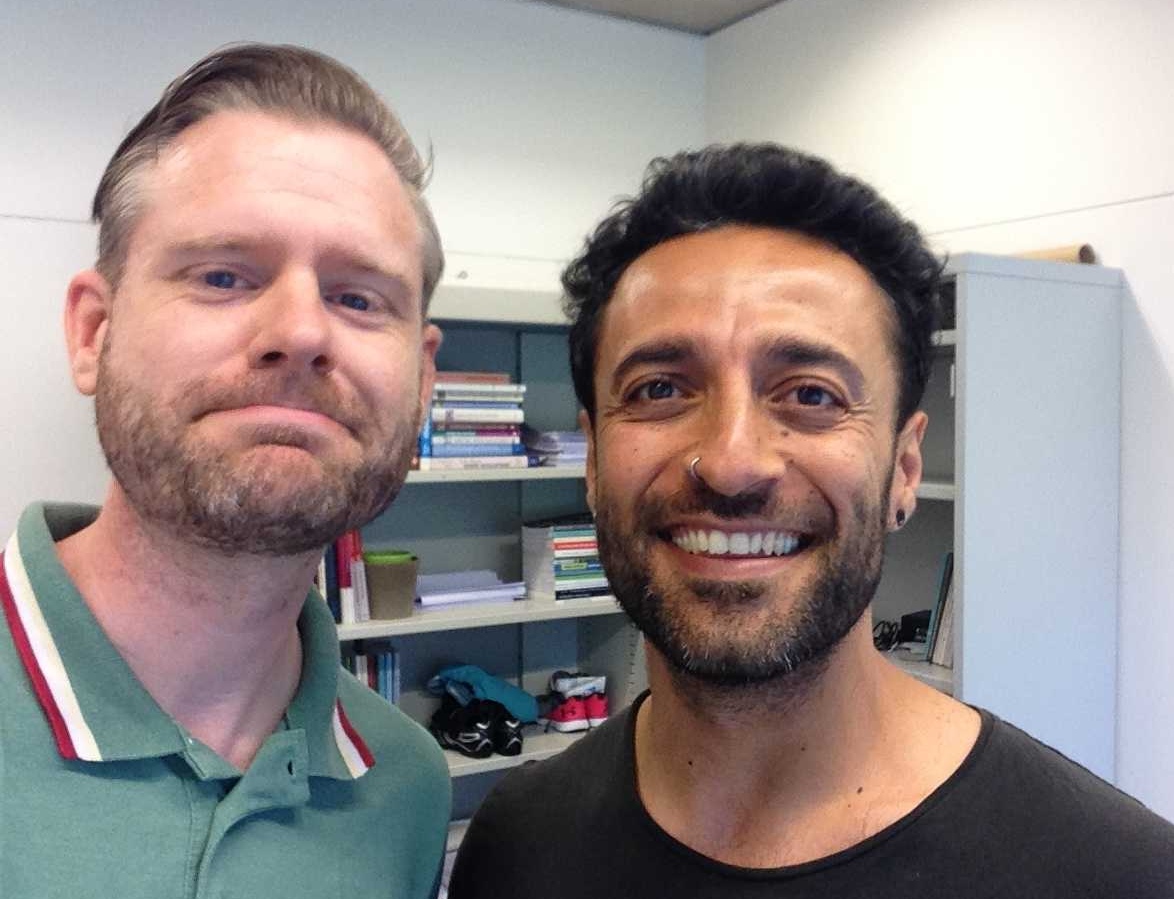Pre-Registered Research Grant Report by Farid Anvari and Daniël Lakens
17.11.2019, by Tina Keil in grant report
Farid Anvari (Eindhoven University of Technology, The Netherlands; University of Southern Denmark) and Daniël Lakens (Eindhoven University of Technology)

The replicability crisis and people’s self-reported trust in psychological science
Replication failures of past findings have resulted in a crisis of confidence in psychological science (Pashler & Wagenmakers, 2012). This replicability crisis has culminated into discussions and debates on public forums about what this means for the field and potential causes for the replication failures. One point of contention has been about whether publicly discussing these events will have a negative impact on people’s trust of psychological science (e.g., Rutjens, Heine, & Sutton, 2017). Recent research suggests that people have less trust in research from psychological scientists and the psychological science community after they have been informed about various aspects of the replicability crisis, including replication failures, questionable research practices (QRPs), and proposed reforms to improve the reliability of our field (Chopik, Bremner, Defever, & Keller, 2018; Wingen, Berkessel, & Englich, 2019). However, replication attempts, scientific self-criticisms, and transparency may maintain or enhance people’s trust in psychological science, at least in the long term, by, for example, enhancing the perceived integrity of the field (Hendriks, Kienhues, & Bromme, 2016; Vazire, 2017).
Therefore, we proposed to distinguish between trust in past research and trust in future research. We expected that while knowledge of replication failures and criticisms of QRPs would reduce trust in past research, trust in future research may be maintained because replication attempts and scientific self-criticisms may signal that we, as a field, want to get things right. We recruited 1129 participants from Prolific and randomly allocated them to either (i) a control group who read neutral information about psychological science, (ii) a replications group who read about replication failures in psychology, (iii) a QRPs group who read about replication failures and QRPs as a potential cause, or (iv) a reforms group who read about replication failures, QRPs, and proposed reforms such as improved transparency in research. Using self-report rating scales, we measured trust in past research in psychological science, trust in future research in psychological science, and how much participants thought research in psychological science should be supported with public funds.
Compared to the control group, the replication failures and the QRPs groups had significantly less trust in past research but trust in future research was not significantly different. Surprisingly, the reforms group had less trust in future research compared to the control group. One explanation for this may be that people reacted negatively when they found out that transparency was not already part of the research process. Importantly, regarding support for future research, equivalence testing showed that there were no meaningful differences between the control group and the other three groups, suggesting that people desire for psychology to continue to be supported by public funding.
The registered report received in-principle acceptance by Comprehensive Results in Social Psychology and has been accepted at Stage 2, with the proofs currently being finalized. The preprint is available at the following link: https://psyarxiv.com/vtmpc/. The EASP Preregistered Research Grant covered the costs of participant compensation. We thank the EASP for this wonderful and generous support for an important reform initiative in psychological science.
References
- Chopik, W. J., Bremner, R. H., Defever, A. M., & Keller, V. N. (2018). How (and whether) to teach undergraduates about the replication crisis in psychological science. Teaching of Psychology, 45(2), 158-163. doi: 10.1177/0098628318762900
- Hendriks, F., Kienhues, D., & Bromme, R. (2016). Disclose your flaws! Admission positively affects the perceived trustworthiness of an expert science blogger. Studies in Communication Sciences, 16(2), 124-131. doi: 10.1016/j.scoms.2016.10.003
- Pashler, H., & Wagenmakers, E. J. (2012). Editors’ introduction to the special section on replicability in psychological science: A crisis of confidence? Perspectives on Psychological Science, 7(6), 528-530. doi: 10.1177/1745691612465253
- Rutjens, B. T., Heine, S. J., Sutton, R., & van Harreveld, F. (2017). Attitudes towards science. Advances in Experimental Social Psychology, 57, 2. doi: 10.1016/bs.aesp.2017.08.001
- Vazire, S. (2017). Quality uncertainty erodes trust in science. Collabra: Psychology, 3(1). doi: 10.1525/collabra.74
- Wingen, T., Berkessel, J., & Englich, B. (2019, February 22). No Replication, no Trust? How Low Replicability Influences Trust in Psychology. doi: 10.31219/osf.io/4ukq5